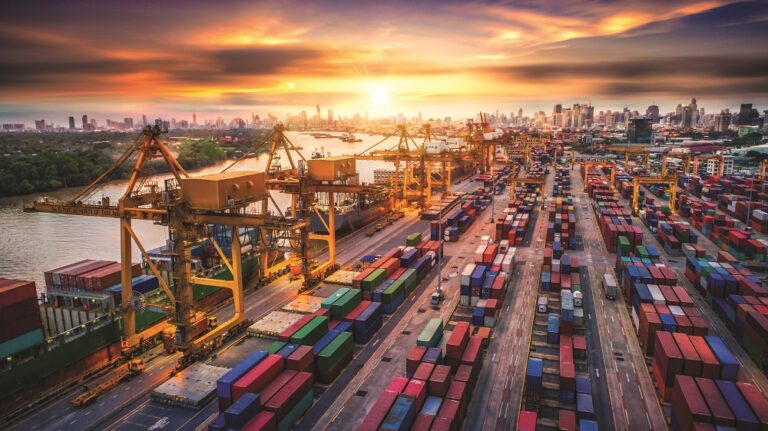The European Union and Mercosur have reached today a political agreement for a comprehensive trade agreement. The European Commission said the new trade framework – part of a wider Association Agreement between the two regions – will consolidate a strategic political and economic partnership and create significant opportunities for sustainable growth on both sides.
The EU is the first major partner to strike a trade pact with Mercosur, a bloc comprising Argentina, Brazil Paraguay and Uruguay. The agreement concluded today will cover a population of 780 million and cement the close political and economic relations between the EU and Mercosur countries. It represents a clear commitment from both regions to rules based international trade and will give European companies an important head start into a market with an enormous economic potential.
According to the NFU, the European agriculture sector has been largely critical of the negotiations. There are fears that a number of sectors will suffer, chief among them beef, poultry and sugar.
As things stand, the EU has offered Mercosur a tariff-free quota of 70,000 tonnes for beef and this would have a seven year phase-in period. This offer could be increased as far as 99,000 tonnes if Mercosur can improve their offer on other offensive EU interests such as the marine and automotive sectors.
This is of great concern to Irish farmers in particular, as a trade deal with Mercosur combined with Brexit would see the EU’s self-sufficiency in beef increase to 116%. It is a well-known fact that Mercosur countries are very competitive producers of beef and they could easily undercut European (and domestic) product.
In the sugar sector, rumours are flying about the level of market access offered to the South American bloc. Most recently an offer of 200,000 tonnes was suggested. As the world’s largest producer of sugar cane, Brazil will have no trouble reaching this figure.
From a poultry perspective the EU is rumoured to have offered a tariff-free quota of 90,000 tonnes of chicken, but commentators suggest this could yet increase to match the beef offer of 99,000 tonnes.
Leaders from France, Ireland, Belgium and Poland have warned about the impact on agriculture and continue to remind EU negotiators that sensitive agri sectors could be at risk.
The European Farmers’ Organisation Copa, as well as a number of national farmers’ organisations from the member states, has been very vocal against the agreement. They are fighting against increased market access on sensitive sectors, and stress the importance the EU’s standards in animal welfare, environment and food safety. These concerns are shared by the NFU and while still a member state we continue to join Copa in their call for a fair and balanced agreement with the Mercosur bloc.
The Eu insisted the agreement would uphold the highest standards of food safety and consumer protection, as well as the precautionary principle for food safety and environmental rules and contains specific commitments on labour rights and environmental protection, including the implementation of the Paris climate agreement and related enforcement rules. President of the European Commission Jean-Claude Juncker said: “I measure my words carefully when I say that this is a historical moment. In the midst of international trade tensions, we are sending today a strong signal with our Mercosur partners that we stand for rules-based trade. Through this trade pact, Mercosur countries have decided to open up their markets to the EU. This is obviously great news for companies, workers and the economy on both sides of the Atlantic, saving over €4 billion worth of duties per year. This makes it the largest trade agreement the EU has ever concluded. Thanks to the hard and patient work of our negotiators, this is matched with positive outcomes for the environment and consumers. And that’s what makes this agreement a win-win deal.”
Phil Hogan, Commissioner for Agriculture and Rural Development, said: “The EU-Mercosur agreement is a fair and balanced deal with opportunities and benefits on both sides, including for Europe’s farmers. Our distinctive, high quality EU agri-food products will now get the protection in Mercosur countries that they deserve, supporting our market position and growing our export opportunities. Today’s agreement also presents some challenges to European farmers and the European Commission will be available to help farmers meet these challenges. For this agreement to be a win-win, we will only open up to agricultural products from Mercosur with carefully managed quotas that will ensure that there is no risk that any product will flood the EU market and thereby threaten the livelihood of EU farmers.”
Main features of the EU-Mercosur trade agreement
The EU-Mercosur region-to-region agreement will remove the majority of tariffs on EU exports to Mercosur, making EU companies more competitive by saving them €4 billion worth of duties per year.
- As regards EU industrial sectors, this will help boost exports of EU products that have so far been facing high and sometimes prohibitive tariffs. Those include cars (tariff of 35%), car parts (14-18%), machinery (14-20%), chemicals (up to 18%), pharmaceuticals (up to 14%), clothing and footwear (35%) or knitted fabrics (26%).
- The EU agri-food sector will benefit from slashing existing Mercosur high tariffs on EU export products, chocolates and confectionery (20%), wines (27%), spirits (20 to 35%), and soft drinks (20 to 35%). The agreement will also provide duty-free access subject to quotas for EU dairy products (currently 28% tariff), notably for cheeses.
EU food safety standards will remain unchanged and all imports will have to comply with the EU’s standards, as is the case today. The agreed food safety, and animal and plant health provisions will reinforce cooperation with the authorities of the partner countries and speed up the flow of information about any potential risks through a more direct and efficient information and notification system.


